Kimia Alizadeh was the first Iranian woman to win a medal at the Olympic games but her fame is not limited to her athletic prowess. She has been the thunderous voice of Iranian women who, under the patriarchal regime of the Islamic Republic, have been deprived of a chance to engage in many sports, of having spectators and being spectators in stadiums. She gained her popularity for her defiance of the authority of rulers who are bent on oppressing women, rather than for the medals she has won.
Kimia Alizadeh Zonouzi was born in Karaj, near Tehran, on July 10, 1998. Her parents were originally from Iran’s northeastern Azeri region and moved to Karaj 20 years earlier in search of a better life. Once in Karaj, her father, Keyvan Alizadeh, set up a workshop for producing embroidered tablecloths, a business that enjoyed such success that today he outsources some of the work to smaller businesses.
Keyvan Alizadeh was not an athlete and had no particular wish or plans to make his daughter into one. But when Kimia was only seven years old her mother took her to the local sports club — which happened to be a taekwondo club for women. Her mother later explained that they had only signed Kimia up to the club to give her something to do outside of school. “We wanted her to move around a bit,” she said. “But her coach decided that her body style was suitable for taekwondo and encouraged us to let her continue.”
The “style” the coach referred to was Alizadeh’s height, which was unusual for a girl of her age. At puberty, she grew to be taller than her father. At 14, when she hoped to participate in provincial competitions in the 57-kg category, she was 180-centimeter tall. She is now 186cm (6.10 feet) tall and competes in the 69kg category.
But taekwondo was not something Alizadeh dreamed about as a young girl, although even at seven years old, it was clear that she had what it took to excel at the sport. “I want to become an astronaut,” she wrote in a school assignment when she was in middle school. This was not just idle wishful thinking. Since childhood, she had been in love with mathematics and physics. But becoming an astronaut was not in the cards.
In 2014, the Iranian Taekwondo Federation decided to send Alizadeh to the Asian Games at Incheon, South Korea. But on the very day she was due to compete, the event’s organizing committee revoked her permit because she was not yet 17. “Next time, please read the Asian Games’ bylaws carefully,” was the answer the Iranian federation got when it objected to the decision. The response was unsatisfactory because, before the competition, this same committee had issued a permit for Alizadeh. All the required information had been supplied to the committee beforehand. Regardless, this is how Kimia Alizadeh’s athletic career began. Luckily, things took a turn for the better.
Four Victories in One Year
Nine years after her mother first took her to a sports club, Kimia Alizadeh won her first honor for Iran at an international competition. In 2014, she became the first Iranian female taekwondo champion at the World Taekwondo Federation’s Junior Championships. She also won a gold medal at the 2014 Summer Youth Olympic Games in Nanjing, China and another gold at the 2014 Guangzhou open games. And, again in 2014, she became world champion at the Antalya Open in Turkey. So, in the span of just one year, she became world champion in three weights — 52, 59 and 63 kilograms.
To nurture such a talent, the Iranian Taekwondo Federation had to invest. Since Alizadeh had to stop going to school to concentrate on her athletic career, she required private tuition, which the federation paid for. Her private teachers remarked that she was so intelligent that they never had to go over a topic more than once. The 2015 World Taekwondo Federation described her as “The Intelligent Iranian Girl.” Others called her a genius. And she was only 16.
In 2015, at the World Taekwondo Grand Prix in Moscow, Kimia Alizadeh became the first Iranian female taekwondo athlete to win a gold medal at the adult games. The same year, she received some good news: Her old coach Mehroo Kamrani, whom she regarded as an older sister — returned to the sport. Alizadeh’s standing was so high that she was able to ask the Iranian Taekwondo Federation to appoint Kamrani as the head coach of the National Women’s Taekwondo Team.
Then, at 18, came the biggest challenge of her young life: The 2016 Rio Olympic Games. That year, Kimia Alizadeh and Zahra Nemati, the Paralympic and Olympic archers, were considered to be the best chances for Iran’s female athletes to win medals.
Above and Beyond the Call of Duty
Kimia Alizadeh won her first match against Croatian athlete Ana Zaninović and advanced to the quarter finals. But then she lost 7-8 to Spain’s Eva Calvo Gómez. Only after the Olympics was it revealed that Alizadeh had gone to Rio with a seriously injured cruciform ligament. After her defeat, as she was still suffering from the injury, she defeated Egyptian Hedaya Malak and Thai Phannapa Harnsujin in the makeup round. Then she won 5-1 against Nikita Glasnović from Sweden and was awarded the Olympic bronze medal.
After this victory, Alizadeh received a congratulatory message of sorts from the Supreme Leader Ayatollah Khamenei. “From the bottom of my heart I thank all women athletes who appeared on the world stage with hijab,” he said, not mentioning her name. The keyword in this message was, of course “hijab”, embodying the claim that mandatory hijab was not an obstacle to the success of Iranian women and even female athletes. But subsequent events showed that Kimia Alizadeh did not share this view.
The official Olympic Games website also remarked on Alizadeh’s achievements: “While the headlines may have gone to Great Britain’s Jade Jones for her second successive gold,” one article read, “Alizadeh’s feat was equally as impressive given the cultural obstacles the 18-year-old has had to overcome. Conservative religious traditions in Iranian society mean that many women don’t pursue careers in sport, but with taekwondo enabling Muslim women to cover up while participating – in keeping with the customs of the faith – Alizadeh was free to take up the martial art. It became evident early on that she would go far.”
After the Olympics, Alizadeh underwent surgery for her injured ligament and had to take a break from tatami taekwondo for months. But even with this time off, when it came to the 2017 WTF World Taekwondo Championships in Muju, South Korea, she won a silver medal.
“I Remain a Daughter of Iran Wherever I Am”
Then, on January 8, 2020, came a piece of news that surprised many: Alizadeh announced she had left Iran permanently for Europe. A few days later, she confirmed the report in an Instagram post, saying: "I am one of the millions of oppressed women in Iran who authorities have played with as they wished for years.” “They took me wherever they wanted,” she continued. “I wore everything they said. I repeated every sentence they ordered. They detained me whenever they saw fit. They attributed my medals to the mandatory hijab and attributed them to their own management. I was not important to them. None of us are important to them; we are tools. These medals are important for them to exploit us for politics at any price they set. But at the same time, they say, in an act of humiliation: the virtue of a woman is that she does not stretch her legs.”
In Germany, together with her husband, Hamed Madanchi, a former Iranian national volleyball team member, Alizadeh spoke to reporters about why she had taken refuge in Europe. She said the decision was harder than winning Olympic gold. “I remain a daughter of Iran wherever I am,” she added.
She then announced that she was asking for asylum in Germany. She expressed a desire to compete for her place of residence, Germany. Having been licensed to compete in the 2020 Tokyo Summer Olympics, she joined the Refugee Olympic Team.
As expected, Kimia’s move angered Islamic Republic officials and the regime’s supporters who called her “faithless,” “traitor” and “childish.” However, it boosted her popularity among Iranian women and gained her the support of western government and sports federations.
In February 2021, Kimia Alizadeh was granted asylum in Germany. The country’s Taekwondo federation described the move as a "great victory" for German Taekwondo and the sporting community in general.
visit the accountability section
In this section of Iran Wire, you can contact the officials and launch your campaign for various problems




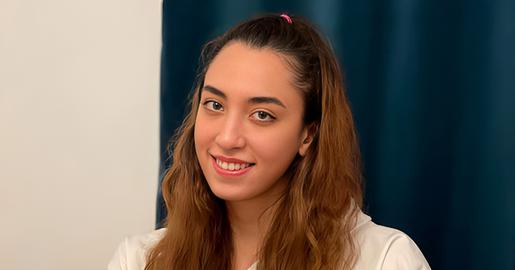
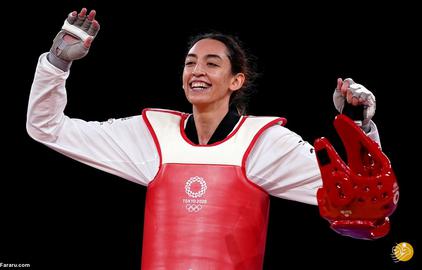





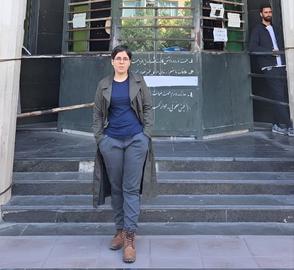
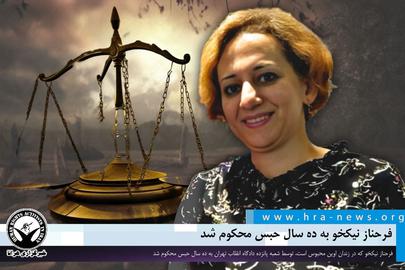







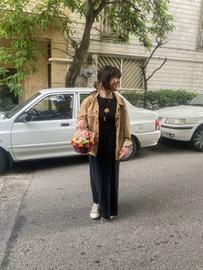
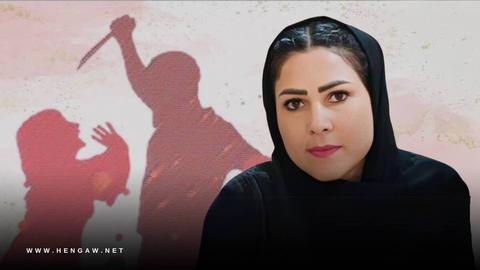




comments